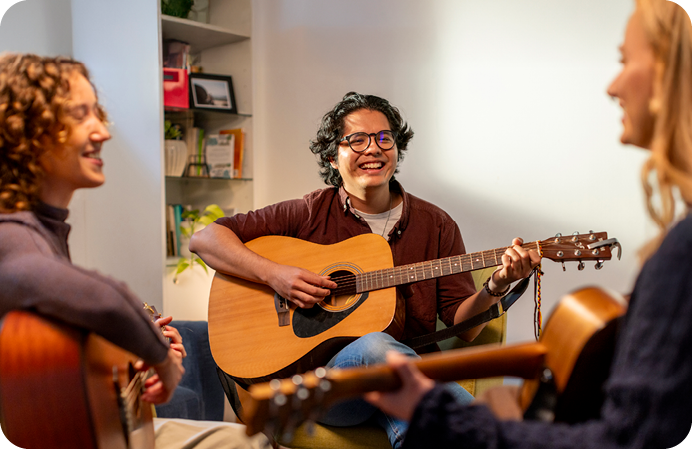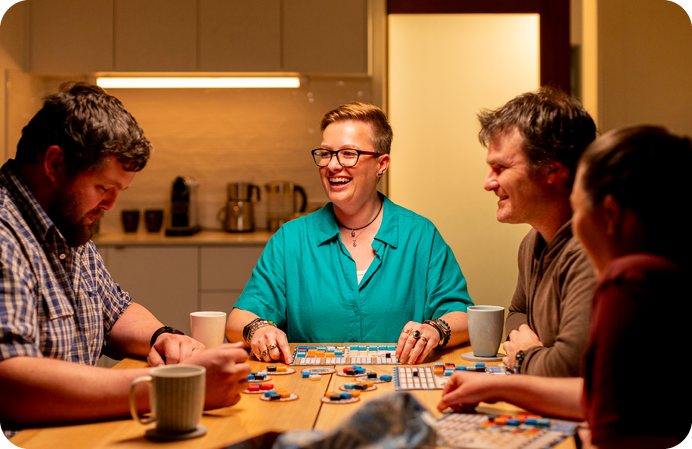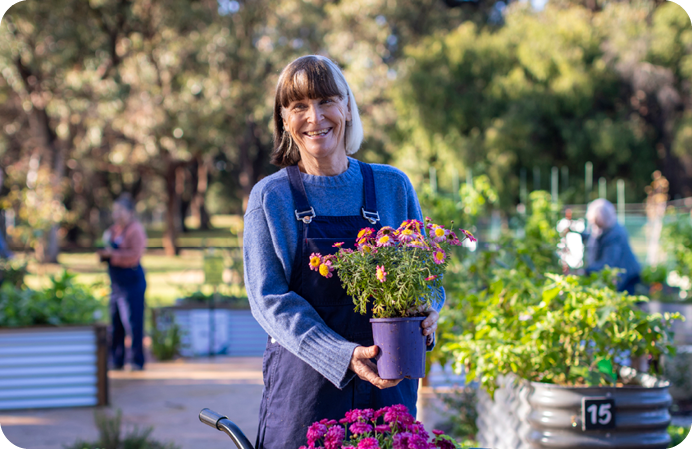How do I keep mentally healthy?
While many things in life are beyond our control, when it comes to our mental health, there are known and trusted things that we can do to help keep mentally healthy.
Being proactive and prioritising our mental health and wellbeing is key. The most effective way to support your mental health is found in the principles of Act Belong Commit. Being active, having a sense of belonging and a purpose in life all contribute to good mental health.
What matters most is putting these three words into action.

Act – Do something
Keep active in as many ways as you can mentally, physically, socially, spiritually, culturally. Go for a walk, say hello, read a book, meditate or pray.
Keep mentally active
Just as our body performs better when we are physically fit, so too does our mind when we are mentally fit. Learning something new, or achieving something mentally (eg. solving a puzzle) contributes to feelings of self-confidence and belief in one’s abilities.
Try doing things you enjoy – not just any old thing. It increases your chances of doing it more which has improved mental health benefits. Think of mental challenges that will benefit other areas of your life – such as finding healthy recipes or budgeting and accounting.
Keep physically active
Any physical activity is good for your mental and physical health. Do something you enjoy to increase the chances of you doing it more often. It doesn’t have to be a big exercise or involve too much expense, it can be as easy as going for a walk. Try to make it regular and build it into your routine.
Getting active with someone else can make it more fun and it also provides the needed motivation to keep going. Do it outdoors in nature for even greater mental health benefits.
Keep socially active
Connecting with others is not only enjoyable but also provides us with a support base when we need it. Sharing the good times and being supported in the no-so-good times is what friendships are all about. Getting together with friends and doing it regularly increases your mental wellbeing – the same can be said for family.
Just being around people has mental health benefits such as getting amongst others at sporting, community or music events. A good start is greeting or saying hello to your neighbour or acknowledging people as they walk past. Any positive social interaction is beneficial.
Intergenerational connection can provide a different perspective. Seniors can gain so much from interacting with children and vice versa! Just do things with others.
Keep spirituality active
While the term spirituality means different things to different people, engaging in some form of spiritual activity contributes to mental wellbeing. Having a sense of spirituality helps people keep things in perspective, provides hope in times of need, relieves stress and can also have social benefits.
There are many ways to express spiritually, through formal religious activities or in non-religious ways, such as spending time in nature, meditation, yoga or creative practices. The benefits of spirituality are greater if practiced on a regular basis, particularly daily!
Keep culturally active
Culture means different things to different people. Keeping connected to your culture can provide social and emotional wellbeing benefits. Teaching young ones about their family or community’s culture and language is a great way for adults to keep connected too. Doing cultural practices together benefits the next generation too. Taking part in cultural ceremonies and expressing culture in the arts is a great way to keep active.

Belong – Do something with someone
Keep connected – to friends, family and community.
Join a book club, join a sports team, take a cooking class, go to community events
Relationships and social connections provide us with a sense of belonging, which is essential for our mental health and wellbeing. Belonging to groups, whether formal or informal, large or small, local or even international, contributes to our identity and who we are. Belonging helps define our sense of identity and satisfies our psychological need for friendship.
You don’t have to belong to a particular type of group – it’s more important that you get amongst something of value to you. Take your pick – a sports team or club, book club, social group or local community group, the list goes on.
Belonging to a group keeps you active. For example, joining a book club keeps your mind active and joining a sports team keeps you physically active. Engaging with cultural practices together benefits the next generation too, fostering a sense of belonging at a young age and keeping you culturally active. Belonging to a group also helps you commit. Volunteering or committing to a cause often happens from within a group.

Commit – Do something meaningful
Do something meaningful, important and valuable to you.
Volunteer, learn something new, take on a challenge, take up a cause, help a neighbour.
The importance of Commit
Commit refers to doing things that provide meaning and purpose in our lives. These can range from successfully completing challenging tasks to volunteering and doing good deeds for others. Committing often helps us Act and Belong. It’s a win, win, win.
Doing something we are proud of, especially when it’s challenging, builds self-confidence and self-esteem. Setting personal challenges and goals gives you something to aim for and helps you keep going when things are a bit tough.
Volunteering can provide meaning and purpose in life and a stronger sense of connection to the world and humanity. The more we commit to a cause, interest or a group, the greater our sense of self and satisfaction with life. Volunteering often gives more reward to the person giving back compared to the person at the receiving end. Giving your time and energy for a good cause makes you feel really good about yourself.
A simple and easy way to feel good about helping others is to start with acts of kindness. An act of kindness could be towards a stranger, a neighbour or friend, and could be as simple as a greeting or saying thank you when someone doesn’t expect it.
